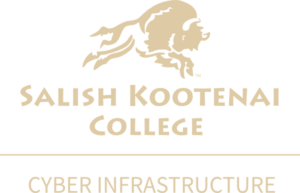Student, Professional, and Institutional Development:
- Summer Undergraduate Research Fellowship (SURF). SURF is designed to inspire undergraduate students to pursue careers in STEM (science, technology, engineering, and mathematics) through a unique research experience that supports the NIST mission. Applications are due by 11:59 pm ET on January 26, 2026.
- Oak Ridge National Laboratory (ORNL) Pathways to Computing Internship Program (PCIP). This is a 10-week summer program that provides undergraduate students with learning opportunities in computer science, computational science, and mathematics. Students will be mentored by ORNL research and technical staff and will be able to make contributions to projects in diverse domains including computer science, health data science, and climate science. Selected interns will have access to ORNL’s leadership-class facilities, including Frontier, ORNL's exascale supercomputer and the world's most powerful supercomputer for open science (June 2025). Applications will be accepted until January 30, 2026.
- Purdue University's Rosen Center for Advanced Computing (RCAC) CI-XP student program is seeking students for Anvil Research Experiences for Undergraduates (REU) paid internships for Summer '26. This REU program aims to develop the next generation workforce in advanced computing and cyberinfrastructure technologies. Applications will be accepted until February 16, 2026 (deadline may close earlier depending on the volume of submissions).
Virtual Meetings, Webinars, and Recordings
- Learning Lab | From Risk to Partnership: Making Vendor Reviews Work: January 2026. Using real-world case studies, practical tools like the HECVAT, and guided assignments, you’ll build a scalable framework you can take back to your campus to streamline reviews, engage stakeholders, and strengthen vendor partnerships. January 12, 15, 21, 28, 2026 | 12:00–1:30 p.m.ET
- Teaching with AI | EDUCAUSE. "Teaching with AI" is a flexible online program tailored for higher education faculty, instructional designers, and support staff designed to deepen participants' understanding of AI and empower them to seamlessly integrate it into their curricula. It features live discussion sessions that offer practical strategies for enhancing student engagement, personalizing learning experiences, and improving educational outcomes. Participants will explore real-world AI applications, engage in interactive activities, and collaborate with peers to develop actionable insights for their teaching practices. January 13–22, 2026, 1-2 pm ET.
- Learning Lab | Integrating AI Literacy Into Your Teaching Practice: January, 2026 | EDUCAUSE. This learning lab is designed to assist educators in gaining a practical understanding of how to develop AI literacy in themselves and their students. Participants will investigate the pros and cons of AI for teaching, learning, and assessment, applying a critical mindset to issues such as ethical challenges, data privacy, and academic integrity. AI literacy will be applied as the foundation for developing AI usage guidance for learners and helping them comply with that guidance. January 14, 21, 26, 29, 2026, 3-4:30 pm ET.
- The Changing Risk Landscape for Research Security: Why "Not My Responsibility" No Longer Works. Drawing on experience from universities and NSF-funded research facilities, this session helps you connect the dots between emerging federal requirements and institutional risks to research integrity, funding, and reputation. This session will be led by Mike Corn, Executive Strategic Consultant for Vantage Technology Consulting Group; Former Cybersecurity Advisor for Research Infrastructure at the National Science Foundation (NSF) and Chief Information Security Officer at the University of California, San Diego Jan. 20, 2026 | 1-2 p.m. ET.
Announcements, Opportunities w/Deadlines
- Submit your current assessment data to the RCD Capabilities Model by December 31 to be part of the current year’s Community Dataset Report. TheCaRCC The RCD Capabilities Model allows participating institutions to assess their support for computationally- and data-intensive research, identify potential areas for improvement, and understand how the broader community views Research Computing and Data support.
- NSF invites feedback on its Tech Labs Initiative. The U.S. National Science Foundation Directorate for Technology, Innovation and Partnerships (NSF TIP) on Friday announced the launch of a new initiative designed to launch and scale a new generation of independent research organizations. These organizations will focus on technical challenges and bottlenecks that traditional university and industry labs cannot easily solve on their own. The Tech Labs initiative will support full-time teams of researchers, scientists, and engineers who will enjoy operational autonomy and milestone-based funding as they pursue technical breakthroughs that have the potential to reshape or create entire technology sectors. NSF seeks feedback on this initiative through a Request for Information (RFI).
- Volunteer as a reviewer for the NAIRR Pilot! The NAIRR Pilot is seeking volunteer reviewers to ensure accepted proposals are of high merit, demonstrate a strong fit with the NAIRR Pilot and resource provider offerings, and are reviewed and awarded promptly. The NAIRR Pilot relies on engaged volunteers to power the review process. Volunteers should be affiliated with a US-based institution, have experience with AI or HPC resources, and be able to serve as a reviewer for at least three months.
